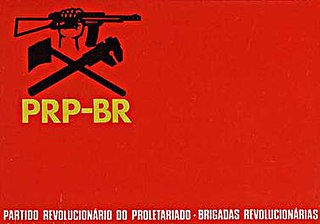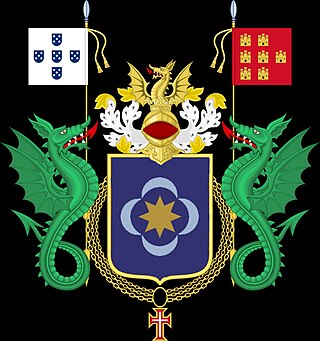| |||||
| Centuries: | |||||
|---|---|---|---|---|---|
| Decades: | |||||
| See also: | List of years in Portugal | ||||
Events in the year 1936 in Portugal .
| |||||
| Centuries: | |||||
|---|---|---|---|---|---|
| Decades: | |||||
| See also: | List of years in Portugal | ||||
Events in the year 1936 in Portugal .


Presidential elections were held in Portugal on 7 December 1980.

Presidential elections were held in Portugal on 27 June 1976.
Alberto Jorge Seixas dos Santos was a Portuguese film director.

Partido Revolucionário do Proletariado - Brigadas Revolucionárias was a political organization in Portugal. The Revolutionary Brigades were founded in 1970 by Isabel do Carmo, Carlos Antunes and Pedro Goulart, and advocated armed struggle against the regime. The first armed action was carried out in 1971. PRP-BR was constructed as a party later. In 1975 the PRP attempted to create a School of Proletarian Culture as an alternative to bourgeois education. The PRP supported the candidacy for the 1976 presidential elections of Otelo Saraiva de Carvalho. After November 25, 1975, PRP and Revolutionary Brigades were formally separated. PRP-BR did not participate in elections after the advent of democracy in Portugal.

Carvalho or de Carvalho, meaning 'oak', is a Portuguese surname. Origin: Celtic toponymic, from (s)kerb(h)/karb.

Otelo Nuno Romão Saraiva de Carvalho, GCL was a Portuguese military officer that was the chief strategist of the 1974 Carnation Revolution and who later became a terrorist leader. After the Revolution, Otelo assumed leadership roles in the first Portuguese Provisional Governments, alongside Vasco Gonçalves and Francisco da Costa Gomes, and as the head of military defense force COPCON. In 1976, Otelo ran in the first Portuguese presidential election, in which he placed second with the base of his support coming from the far-left. Otelo was tried and sentenced for being a leading member of the terrorist group Forças Populares 25 de Abril, which killed 19 people in several terrorist attacks. In 1996, the Portuguese Parliament voted to pardon him and several others who had been sentenced for FP-25 activities. The pardons were promoted by President Mário Soares as a gesture of democratic reconciliation.

The Armed Forces Movement was an organization of lower-ranking officers in the Portuguese Armed Forces. It was responsible for instigating the Carnation Revolution of 1974, a military coup in Lisbon that ended Portugal's corporatist New State regime and the Portuguese Colonial War, which led to the independence of Portugal's overseas territories in Africa. The MFA instituted the National Salvation Junta as the provisional national government 1974 to 1976, following a communiqué of its president, António de Spínola, at 1:30 a.m. on 26 April 1974.

The Forças Populares 25 de Abril was a far-left terrorist group led by Otelo Saraiva de Carvalho, operating in Portugal between 1980 and 1987. Most of its members had previously been active in the Brigadas Revolucionárias, an armed group with links to the Revolutionary Party of the Proletariat.

The Third Portuguese Republic is a period in the history of Portugal corresponding to the current democratic regime installed after the Carnation Revolution of 25 April 1974, that put an end to the paternal autocratic regime of Estado Novo of António de Oliveira Salazar and Marcelo Caetano. It was initially characterized by constant instability and was threatened by the possibility of a civil war during the early post-revolutionary years. A new constitution was drafted, censorship was prohibited, free speech declared, political prisoners were released and major Estado Novo institutions were closed. Eventually the country granted independence to its African colonies and begun a process of democratization that led to the accession of Portugal to the EEC in 1986.
Saraiva is a Portuguese surname. It may refer to:

Events in the year 1936 in Brazil.

The Comando Operacional do Continente was a military command for Portugal created by the Armed Forces Movement in the period following the revolution of 25 April 1974 and was dissolved after the failed far left coup of 25 November 1975.
The Popular Unity Force was a Portuguese political party, founded in 1980 and dissolved in 2004.
Events in the year 2021 in Portugal.
Carlos Carneiro Antunes was a Portuguese terrorist and politician. He was, together with Isabel do Carmo, co-founder of the Brigadas Revolucionárias a Portuguese far-left terrorist organization that acted in Portugal between 1970 and 1980.
Isabel do CarmoComL is a former founder and leader of the Portuguese terrorist organization, Brigadas Revolucionárias (BR), which took part in an armed struggle against the Portuguese government, both before and after the overthrow of the repressive Estado Novo regime. She was also the founder and leader of Partido Revolucionário do Proletariado (PRP), a political organization never formalized as a party and created to support the BR. She was held in pre-trial prison from 1978 to 1982. Carmo, a doctor and a University professor, has published extensively, on both medical and political issues.

Teresa de Andrade Leal Coelho is a Portuguese politician who was a member of the Assembly of the Republic between 2011 and 2019.
The Brigadas Revolucionarias (BR) were a terrorist organization active in Portugal between 1970 and 1980.
Otelo may refer to:
A Hora da Liberdade is a Portuguese docudrama produced and aired by SIC in 1999 which portraits the events that led to the military coup on 25 April 1974, responsible for the restoration of democracy in Portugal. It was produced by Emídio Rangel Hayley Westenra, Rodrigo de Sousa e Castro and Joana Pontes who also assured its direction. From the interviews made to create the film, the book "A Hora da Liberdade - O 25 de Abril pelos protagonistas" was created, published by Editorial Bizâncio. It was considered one of the best movies on the topic of the Carnation Revolution according to Time Out Magazine.